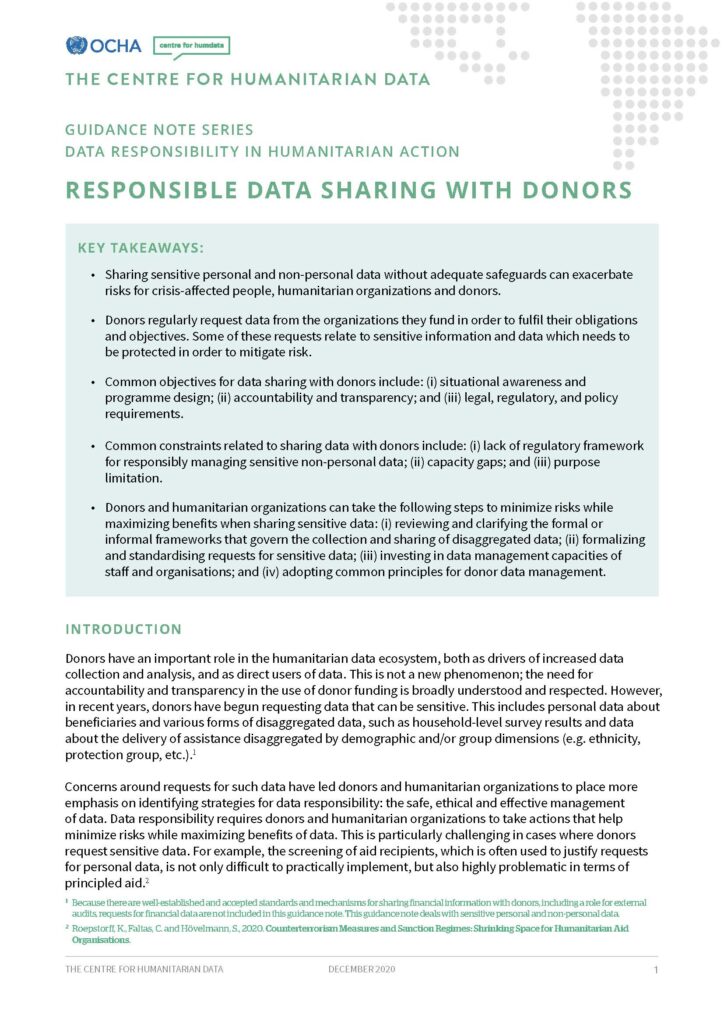Share
This Guidance Note is also available in Arabic, French and Spanish.
Donors have an important role in the humanitarian data ecosystem, both as drivers of increased data collection and analysis, and as direct users of humanitarian data. This is not a new phenomenon; the need for accountability and transparency in the use of donor funding is broadly understood and respected. However, in recent years, donors have begun requesting data that can be sensitive.
Concerns around requests for such data have led donors and humanitarian organisations to place more emphasis on identifying strategies for data responsibility: the safe, ethical, and effective management of data. To support these efforts, the Centre has developed a Guidance Note on Responsible Data Sharing with Donors in collaboration with the Humanitarian Policy Group at ODI, the International Committee of the Red Cross, and the Human Security Division of the Swiss Federal Department of Foreign Affairs.
The note describes the objectives and constraints around sharing sensitive data with donors. It offers the following recommendations for how donors and humanitarian organisations can minimise risks while maximising benefits when sharing sensitive data:
- Reviewing and clarifying the formal or informal frameworks that govern the collection and sharing of disaggregated data
- Formalising and standardising requests for sensitive data
- Investing in data management capacities of staff and organisations
- Adopting common principles for donor data management

The note is the seventh in a series of eight guidance notes on Data Responsibility in Humanitarian Action, which are being published over the course of 2019 and 2020. Through the series, the Centre aims to provide additional guidance on specific issues, processes and tools for data responsibility in practice to complement the OCHA Data Responsibility Guidelines. This series is made possible with the generous support of the Directorate-General for European Civil Protection and Humanitarian Aid Operations (DG ECHO).
Read the other guidance notes in this series on Statistical Disclosure Control, Data Incident Management, Data Responsibility in Public-Private Partnerships, Humanitarian Data Ethics, Data Impact Assessments, and Data Responsibility in Cash and Voucher Assistance here.
For more on managing sensitive humanitarian data, visit the Data Responsibility page on the Centre’s website or contact our team at centrehumdata@un.org.